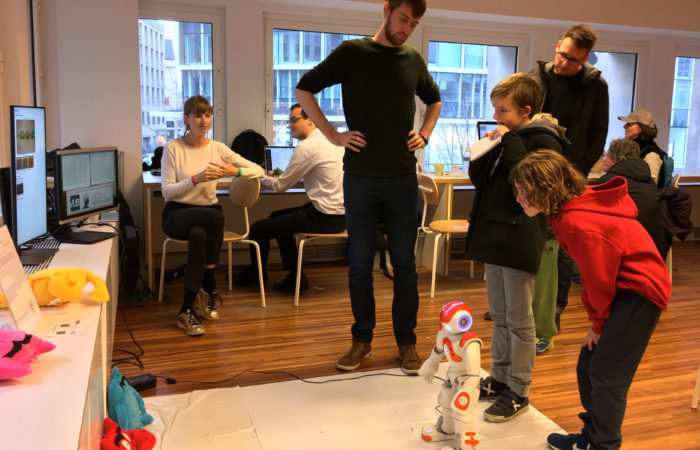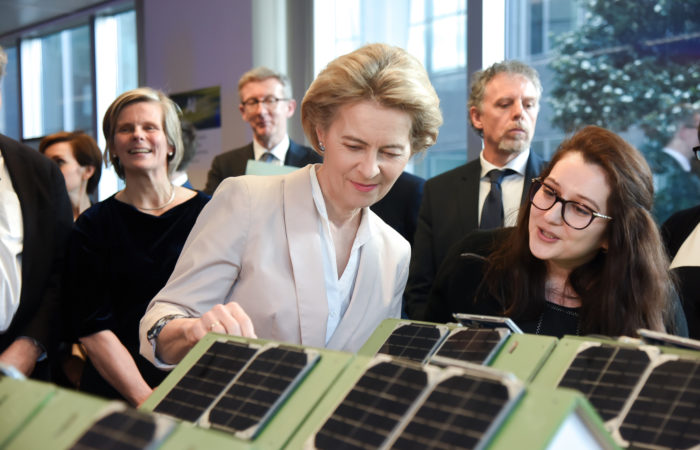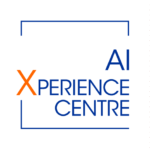The VUB cross-faculty Artificial Intelligence Lab (AI Lab), headed by Prof. Ann Nowé, is a consortium of 3 VUB research groups collaborating on human-centred AI. The main application domains are human-computer interaction, cyber-physical systems, and business analytics. Over the past 5 years, the multi-disciplinary team of over 60 researchers was involved in 12 EU projects and carried out more than 20 applied research projects, corporate trainings, and consultancy with industry partners from multiple sectors, such as manufacturing, energy, telecommunications, fintech, and health. Their unique approach aligns with the Centre’s motivation to facilitate multi-stakeholder collaborations for our partners.


The AI Lab was founded in 1983 by Prof. Luc Steels and has always had a unique view on AI as an interdisciplinary science, where researchers from different backgrounds come together. For this reason, the lab employs not only computer scientists, engineers, and mathematicians but also linguists, psychologists, physicists, and musicologists. The key research areas of the lab are multi-agent systems, reinforcement learning, game theory, language processing and learning, computational creativity, knowledge representation and reasoning, data mining, and computational biology. he AI Lab has a rich track record in collaborating with industry and other research groups both on an international and on a national level. The lab is a member of several universities, Belgian and European networks, such as Brubotics, IB2, and CLAIRE.
The VUB Data Analytics lab at the Faculty of Economics and Social Sciences and Solvay Business School lead by Prof. Wouter Verbeke and prof. Tias Guns. The Lab works closely with the research group MOBI. The team is in constant collaboration with various industrial and academic partners whilst also being part of the AI Lab. The group develops algorithms and analytical tools whilst incorporating the domain expertise, the business requirements, and the operational setting of the application. The operational context includes adherence to user requirements, interpretability and interaction with other systems, and impact on revenues. Demand forecasting, exploratory data analysis, credit risk modeling, constraint-based clustering, fraud detection, and customer churn prediction are some of the examples of their application domains.
Digital Mathematics (DIMA) focuses on applied mathematics relying on a solid foundation of interplay with a variety of areas of pure mathematics. As such, they specialize in applying the mathematical foundations for digital data representation, analysis, communication and security.
Since its foundation, more than 50 people have received a PhD degree at the Artificial Intelligence Lab, of which 18 in the past 5 years only. The total amount of publications sums up to more than 850 publications which are cited more than 24.000 times, 8500 times in the last 5 years. The lab also has experience in setting up of spin-offs (5 since its beginning). The research group is provided with standard hardware and software utilities and departmental services (secretary and ICT support). The COMO group of the AI-lab focuses on the one hand on the modeling of natural phenomena, and on the other hand on developing algorithms for complex problem solving inspired by these natural phenomena. The lab has experience in a wide range of learning techniques such as: Reinforcement Learning, Genetic Algorithms, Neural Networks, Support Vector Machines, Graphical models including Bayesian Networks, Genetic algorithms etc.
The AI lab has applied artificial intelligence techniques including machine learning in a wide range of settings in the past, from robotics (MIRAD – Vlaio SBO), Industry 4.0 (“OperatorInfo”) to epidemics (“Learning optimal preventive strategies to mitigate epidemics of latent infectious diseases” (FWO), in which individual-based models are combined with multi-armed bandit problems to come with an ideal disease mitigation strategy.
On the national level the lab collaborates with several research groups. For the proposed project the most relevant ones are: CIB KULeuven, Flanders Make (formerly FMTC), KULeuven Division of Production Engineering, Machine Design & Automation (PMA), INTEC UGent, Systems UGent, PATS UA, Applied Mathematics and Computer science UGent, Distrinet KULeuven, Mebios KULeuven. The lab is also a member of the BruBotics Research Center, a VUB initiative which assembles interdisciplinary groups working on all aspects of robotics.
The group also has a strong collaboration with their counterparts at the Université Libre de Bruxelles on topics related to Computational Biology and (Evolutionary) Game Theory. The group participates in a new Brussels institute for Bioinformatics research; the new institute called IB² gathers all medical and computational expertise in the Brussels area to tackle medical questions related to cancer, diabetes, etc.
Through our alumni we have good connections with industry. They have taken jobs in AI companies like Google and DeepMind, and have been attracted by industry, often through contacts via SBO projects, to set up a team on data analytics (e.g Yann-Michael De Hauwere at Persgroep, Maarten Devillé at Medialaan and Maarten Peeters Forecasting Team Coordinator at ENGIE).
There are also many international collaborations including: University of Minho and CFTC Lisbon, University of Maastricht (Kurt Driessens), University of York (Daniel Kudenko), Goldsmiths College London (Mark d’Inverno), Universität Wien (Tecumseh Fitch), University of Haifa (Wendy Sandler), Washington State University (Matt Taylor) and University of Liverpool (Karl Tuyls), and institutes in developing countries, in particular: University of Santa Clara and University of Camaguey in Cuba and University of Moi Kenya.
